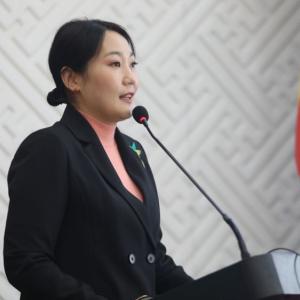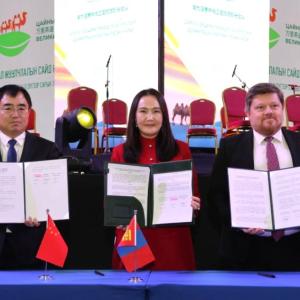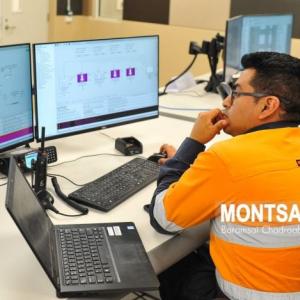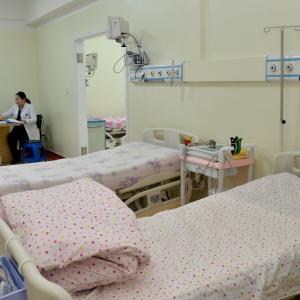Decisions Made at the Cabinet Session
Politics
Ulaanbaatar, March 28, 2024 /MONTSAME/. During its regular session on March 27, 2024, the Cabinet made the
following decisions:
Cargo Transportation at Zamiin-Uud-Ereen Port will be Open 24 Hours a Day from April 1, 2024
B. Tulga, Minister of Mongolia, and
Chairman of the National Committee for Port Revival, has been instructed to
organize and prepare for the 24-hour operation of Zamiin-Uud-Ereen port from
April 1 to September 30, 2024.
Draft Law on Reducing the Negative Effects of Climate Change Discussed
D. Amarbayasgalan, Minister of Mongolia and Head of the Cabinet Secretariat, presented the draft law on Reducing the Negative Effects of Climate Change on Livestock Husbandry.
In the draft law, the livestock husbandry
sector defines measures to overcome the difficulties of nature and climate with
low risk. It includes regulations aimed at improving the value and
competitiveness of livestock products by supporting cooperation and cooperative
initiatives. Additionally, it proposes providing loans to citizens who join
herdsmen's cooperatives through commercial bank sources. These loans would be
guaranteed 100% from the loan guarantee fund. The draft also outlines the model
of primary and secondary cooperatives in accordance with regional
characteristics, specifies the obligations of herdsmen and herdsmen's
cooperatives involved in the provision of fodder planting conditions, and
delineates the support provided by law.
Intensification of Health Care E-Transition Mandated
The Working Group, established by order of the Prime Minister of Mongolia, presented to the members of the Cabinet the results of their work in intensifying the e-transition of healthcare. Relevant government members and organization management were instructed to procure necessary equipment for the specialized database within the approved budget, launch an advocacy campaign for citizens, and support the information exchange of the specialized health database.
More than 30,000 doctors and medical specialists in public and private sector organizations operating in the field use over 10 software programs in their daily activities, facilitating double the number of 20 million outpatient examinations and one million inpatient treatments and services, and recording personal health audio and video data. This information is collected and utilized for diagnosis and treatment services.
The Working Group was established by the
Prime Minister's order to study the issue of creating opportunities for
information exchange between systems as part of the effort to intensify the
electronic transition in the health sector. Within the integrated state
electronic service system /E-Mongolia/, prescriptions, imaging findings, test
results, children's preventive vaccination certificates, outpatient doctors'
cards, pregnant women's control guide cards, and maternal and child health
records are ready to be fully transferred to electronic format.
There Are 66 Thousand People Infected with Hepatitis D Virus
Minister of Health S. Chinzorig introduced the current status of hepatitis D virus infection, treatment, and diagnosis, as well as measures to be taken in the future. The prevalence of hepatitis virus infection is high in Mongolia. Liver cirrhosis and cancer are common complications among those infected, and the number of deaths due to this is the highest in the world. In particular, 80 percent of combined infections with B and D viruses are complicated by chronic liver inflammation, cirrhosis, and cancer.
The World Health Organization believes that hepatitis D virus infection does not exist alone, and five percent of people infected with the B virus have co-infection with the D virus. According to an international meta-analysis, it was estimated that there may be 66 thousand people infected with the hepatitis D virus in Mongolia.
In 2023, the Ministry of Health paid more
attention to the issue of including citizens in the treatment of hepatitis D
virus infection. Of the MNT 13.5 billion budgeted for 2023, 9.7 billion MNT has
been allocated to the “Eleg Buten Mongol” program, MNT 2.3 billion for
increasing diagnostic capacity, strengthening human resources, and MNT 1.4
billion for improving early detection and diagnosis in rural communities.
 Ulaanbaatar
Ulaanbaatar













































































